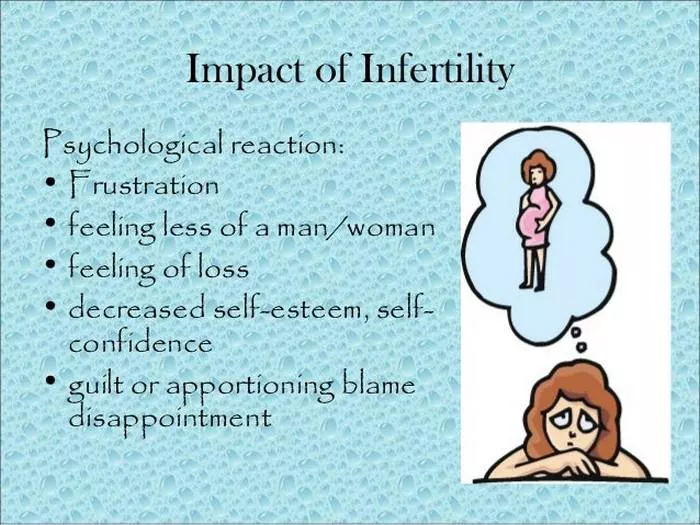Infertility, the inability to conceive after a year of regular, unprotected intercourse, can be an emotionally and psychologically taxing experience for individuals and couples who dream of starting or expanding their families. While the desire to have a child is a deeply personal and fundamental aspect of human nature, facing obstacles on the road to parenthood can bring about a range of complex emotions and challenges. In this article, we’ll explore why infertility can be so difficult to cope with, shedding light on the multifaceted impact it can have on individuals and relationships.
The Desire for Parenthood: A Fundamental Human Experience
For many people, the desire to become a parent is a deeply ingrained and cherished aspiration. Just as a seed longs to grow into a flourishing plant, individuals and couples often envision themselves nurturing and raising a family of their own. Parenthood is seen as a milestone of adulthood, a source of fulfillment, and a legacy to pass on to future generations. When faced with infertility, individuals may feel as though their dreams of parenthood are slipping away, leading to feelings of loss, disappointment, and inadequacy.
Social Expectations and Stigma: Navigating External Pressures
In addition to personal aspirations, societal expectations and cultural norms surrounding parenthood can add another layer of pressure for individuals struggling with infertility. Just as a spotlight can magnify perceived shortcomings, societal attitudes toward fertility and family planning can exacerbate feelings of shame, guilt, and isolation for individuals and couples who are unable to conceive. The pervasive stigma surrounding infertility can make it difficult for individuals to openly discuss their struggles and seek support from friends, family, or healthcare professionals.
The Biological Imperative: Confronting the Biological Clock
Biologically, the window of fertility is finite, particularly for women. Just as a flower blooms for a limited time before wilting, a woman’s reproductive capacity declines with age, making it increasingly challenging to conceive as she approaches her late 30s and early 40s. The biological clock is a harsh reality for individuals and couples facing infertility, as they grapple with the pressure of time and the fear of missed opportunities for parenthood. This awareness of biological limitations can amplify feelings of urgency and anxiety surrounding fertility treatments and family planning decisions.
Financial and Emotional Costs: Navigating the Challenges of Treatment
The journey through infertility can be financially and emotionally draining, with the costs of fertility treatments and procedures often adding up over time. Just as a mountain climber must navigate treacherous terrain and endure physical exertion to reach the summit, individuals and couples undergoing fertility treatments may face a series of obstacles, setbacks, and disappointments along the way. The financial burden of fertility treatments, coupled with the emotional toll of failed cycles and uncertain outcomes, can take a significant toll on mental health and well-being.
Relationship Strain: Navigating the Impact on Partnerships
Infertility can put a strain on even the strongest of relationships, testing communication, intimacy, and emotional support between partners. Just as a ship must weather storms at sea, couples navigating infertility may find themselves grappling with feelings of blame, resentment, and inadequacy as they cope with the challenges of conception. The pressure to conceive can create tension and conflict within relationships, leading to feelings of isolation and disconnection if not addressed openly and honestly.
Loss of Identity: Navigating Personal and Social Identity
For many individuals, parenthood is closely tied to their sense of identity and self-worth. Just as an artist’s identity is intertwined with their creative expression, individuals who struggle with infertility may experience a loss of identity and purpose as they grapple with feelings of inadequacy and failure. The inability to conceive can challenge deeply held beliefs and expectations about one’s role in society and relationships, leading to a profound sense of grief and loss.
The Need for Support:
In the face of infertility‘s challenges, seeking support from trusted friends, family members, or support groups can make a significant difference in coping with the emotional toll of the journey. Just as a sturdy lifeline provides stability and support in turbulent waters, connecting with others who have shared experiences can offer validation, understanding, and hope for individuals and couples navigating infertility. By acknowledging and addressing the emotional impact of infertility and seeking support from a compassionate community, individuals can find strength and resilience in the face of adversity.
[inline_related_posts title=”You Might Be Interested In” title_align=”left” style=”list” number=”6″ align=”none” ids=”1716,1720″ by=”categories” orderby=”rand” order=”DESC” hide_thumb=”no” thumb_right=”no” views=”no” date=”yes” grid_columns=”2″ post_type=”” tax=””]

























